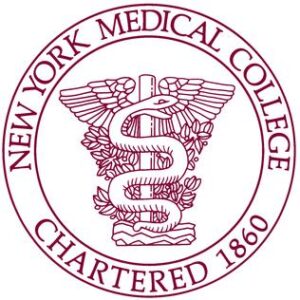 New York Medical College (NYMC), in collaboration with ReCode Therapeutics, a clinical-stage genetic medicines company, today announced that the first participant has been dosed with RCT2100 — a novel investigational inhaled messenger RNA (mRNA) therapy for people with cystic fibrosis (CF). This clinical trial aims to assess the safety and tolerability of RCT2100, providing new hope for people who do not respond to existing CFTR modulator treatments. While there are currently 13 clinical trial sites for RCT2100 throughout the country, this was the first dose to be successfully administered in the United States.
New York Medical College (NYMC), in collaboration with ReCode Therapeutics, a clinical-stage genetic medicines company, today announced that the first participant has been dosed with RCT2100 — a novel investigational inhaled messenger RNA (mRNA) therapy for people with cystic fibrosis (CF). This clinical trial aims to assess the safety and tolerability of RCT2100, providing new hope for people who do not respond to existing CFTR modulator treatments. While there are currently 13 clinical trial sites for RCT2100 throughout the country, this was the first dose to be successfully administered in the United States.
“This milestone represents a pivotal moment for the cystic fibrosis community and reflects our ongoing commitment to advancing care for patients with CF,” said Allen J. Dozor, M.D., professor of pediatrics and chief of the Division of Pulmonology, Allergy, and Sleep Medicine at NYMC and president of BCHP, who personally administered the dose. “We are proud to play a leading role in this important study and are hopeful that RCT2100 will provide a meaningful new option for those living with this challenging disease.”
To continue the protocol for the clinical trial, the patient will receive another dose of RCT2100 in the coming days and be admitted for another 24-hour observation period. If the second dose is successfully tolerated, the patient will receive repeated doses every two to three days for a few weeks, with the hopes that there continues to be a positive response to the therapy.
“Living with cystic fibrosis has been a long and interesting journey,” said the patient. “I am grateful for my medical team in getting me the proper care and providing me with the opportunity to take part in trial medications like RCT-2100. My body took time to adjust over the holidays, but I am hopeful that 2025 will bring success in advancements in gene therapy for cystic fibrosis. I can’t wait.”
CF is caused by mutations in the cystic fibrosis transmembrane conductance regulator (CFTR) gene, which affects approximately 105,000 people worldwide. Although CFTR modulators are available that work for 90 percent of people with CF, many will not be able to take the medication due to side effects, lack of response, or other reasons. About 10 percent of the CF community has genetic mutations that prevent them from benefiting from these therapeutics.
RCT2100 is an investigational inhaled therapy for CF based on mRNA. Unlike current treatments, which correct or enhance faulty CFTR proteins, RCT2100 is designed to deliver CFTR mRNA directly to lung cells, instructing them to produce new, fully functional CFTR proteins. This approach aims to address the underlying cause of CF, potentially improving proper protein function in the lungs rather than just managing symptoms.
The Phase 1b clinical trial is being conducted at multiple sites globally, including the United States, the Netherlands, France, and the United Kingdom. For more information about the RCT2100 clinical trial, visit CF-Clinical-Studies.com.






